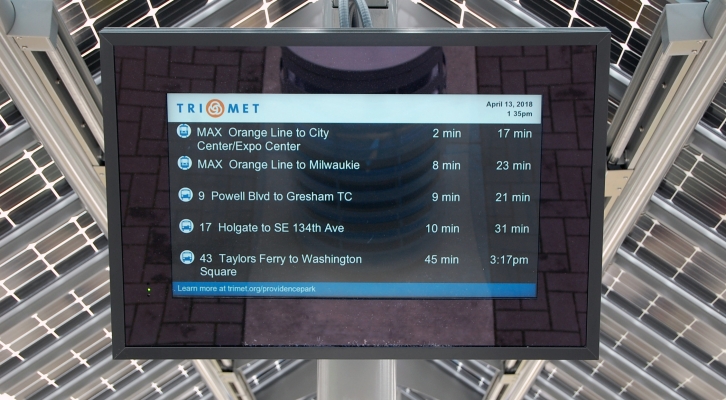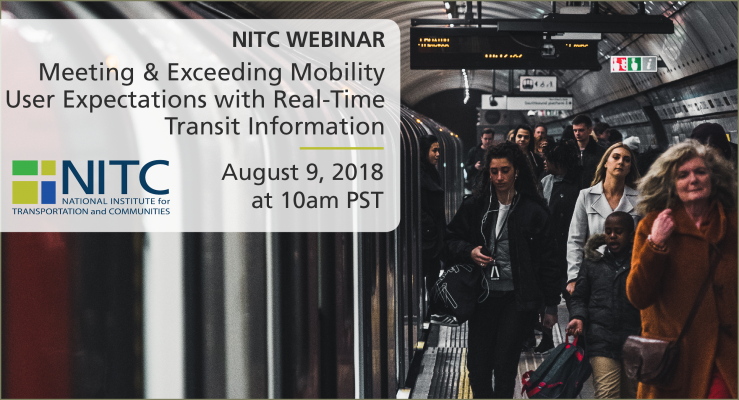Social marketing can be a useful transportation demand management (TDM) planning approach, to change people's travel behavior. A new NITC study led by Philip Winters and Amy Lester of the University of South Florida's Center for Urban Transportation Research (CUTR) explored a consumer...
Read moreEvery day transit riders ask the same question: when’s the next one coming? To answer this question, transit agencies are transitioning to providing real-time transit information through smartphones or displayed at transit stops.
Real-time transit information improves the reliability and efficiency of passenger travel, through:
- shorter perceived and actual wait times,
- an increased feeling of safety,
- increased ridership, and
- a lower learning...
Learn more about this research project by viewing the two-page Project Brief, related presentations, and the full Final Report.
In Tampa Bay, Florida, it's hard to get around without a car. For those who depend on transit, the simple task of bringing groceries home can take up an entire afternoon.
Add the extra difficulty of food insecurity—which affects a wide variety of people and may mean they can't afford to go to the grocery store, but must travel to a food pantry—the task of procuring those groceries gets even more difficult.
Now take away the possibility of transit. Where does that leave you? Hungry, wherever you are.
According to a new study from NITC investigators at the University of South Florida (USF), there are 136,401 people in Florida's Hillsborough, Pasco and Pinellas counties who are both food insecure and lack adequate access to transit.
Food insecurity affects a wide range of people and most acutely affects vulnerable populations such as children, pregnant women, seniors and individuals with disabilities.
The study, led by...
Read moreWATCH THE RECORDED VIDEO
PRESENTATION SLIDES
Miss the presentation or want a look back? You can view the presentation slides here.
OVERVIEW
Every day transit riders ask the same question: when’s the next one coming? To answer this question, transit agencies are transitioning to providing real-time transit information through smartphones or displayed at transit stops.
The proliferation of transit planning and real time arrival tools that have hit the market over the past decade is staggering. Yet with transit ridership on the decline, agencies can’t afford to ignore the importance of providing accurate, real time information to their customers. Real-time transit information improves the reliability and efficiency of passenger travel, but barriers have prevented some transit agencies from adopting the GTFSrealtime v1.0 technology. A new NITC-funded study in May led by Sean Barbeau of the University of South Florida seeks to...
Read morePRESENTATION ARCHIVE
Miss the webinar or want a look back?
- Watch the recorded video
- View the presentation slides
- Access the Excel-based Market SEGMENT prediction tool
OVERVIEW
Social marketing seeks to develop and integrate marketing concepts with other approaches to influence behaviors that benefit individuals and communities for the greater social good. It is a useful transportation demand management (TDM) planning approach to promote travel behavior change. The purpose of this study was to explore a consumer market segmentation technique successfully used in Europe for its applicability to marketing efforts in the United States. Attitudinal and demographic data were collected from 1900 individuals in Florida, Oregon, and Virginia modeled after the European approach. Clustering analysis was applied to divide the sample into segments so that members of the same group share similar attitudes. These include attitudes about various modes, car use, and congestion and environment. A...
Read more




